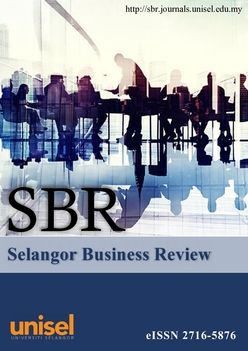Socio-demographic Perspective on the Intention to Use Malaysian Dietary Guidelines among Young Adults
Abstract
Malaysia is facing an obesity crisis, which calls for immediate actions. One of the ways is to encourage the use of the Malaysian Dietary Guideline (MDG) to guide the population to eat healthily. However, empirical evidence suggested that the majority of Malaysians, including young adults, were not meeting the recommended dietary requirements. In light of this issue, this article sought to examine the intention to use the MDG as a reference for healthy eating among young adults in Malaysia from a socio-demographic perspective. In particular, this study examined the differences between/ among gender, age, ethnic groups, levels of education, levels of income, and living accommodations on young adults’ intention to use the MDG. The study was carried out on university students of various institutions of higher learning in Malaysia using a questionnaire. A total of 204 valid responses were obtained and they were analysed using t-test and one-way analysis of variance (ANOVA). The results showed that all six demographic factors did not have any significant differences toward young adults’ intention to use MDG as a source of reference for eating healthily. As an implication, the study recommended for stakeholders (such as policymakers, health professionals, and nutrition educators) to focus on factors other than the demographic profile of users in ensuring greater use of the MDG.





 3,026
3,026 2,412
2,412 1,466
1,466